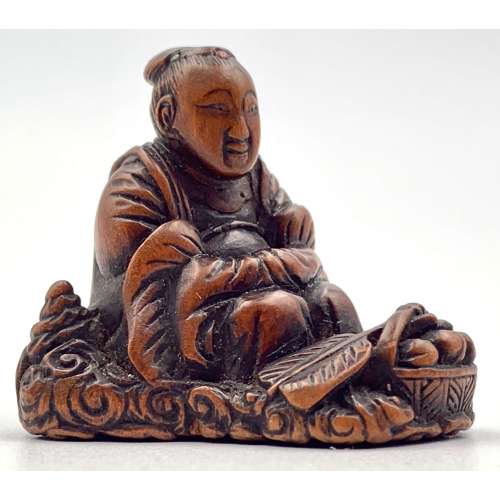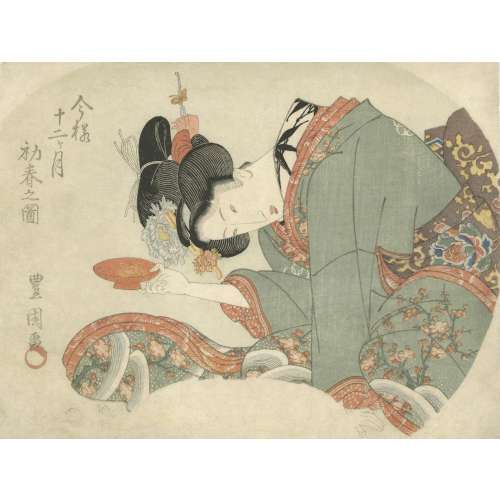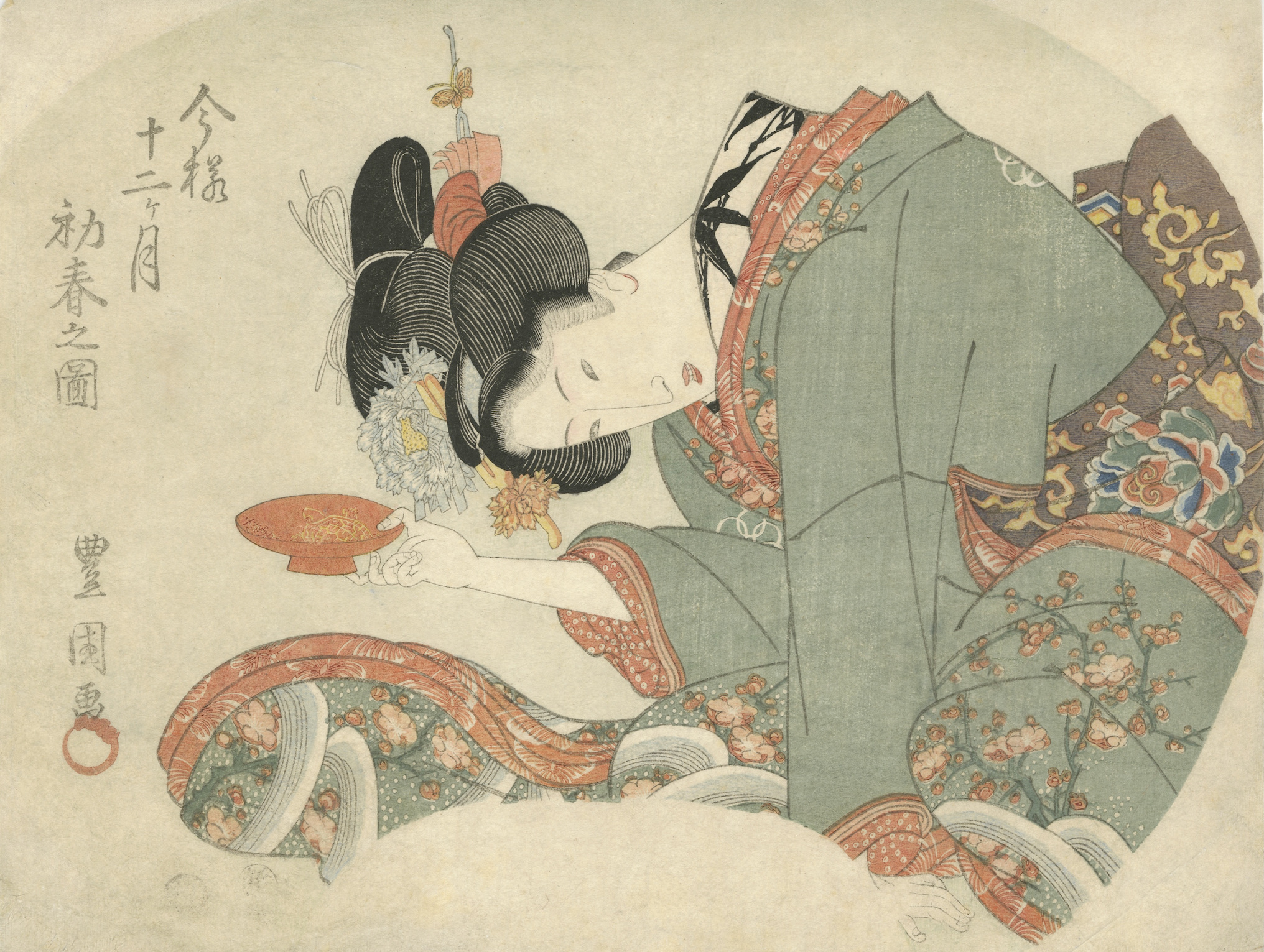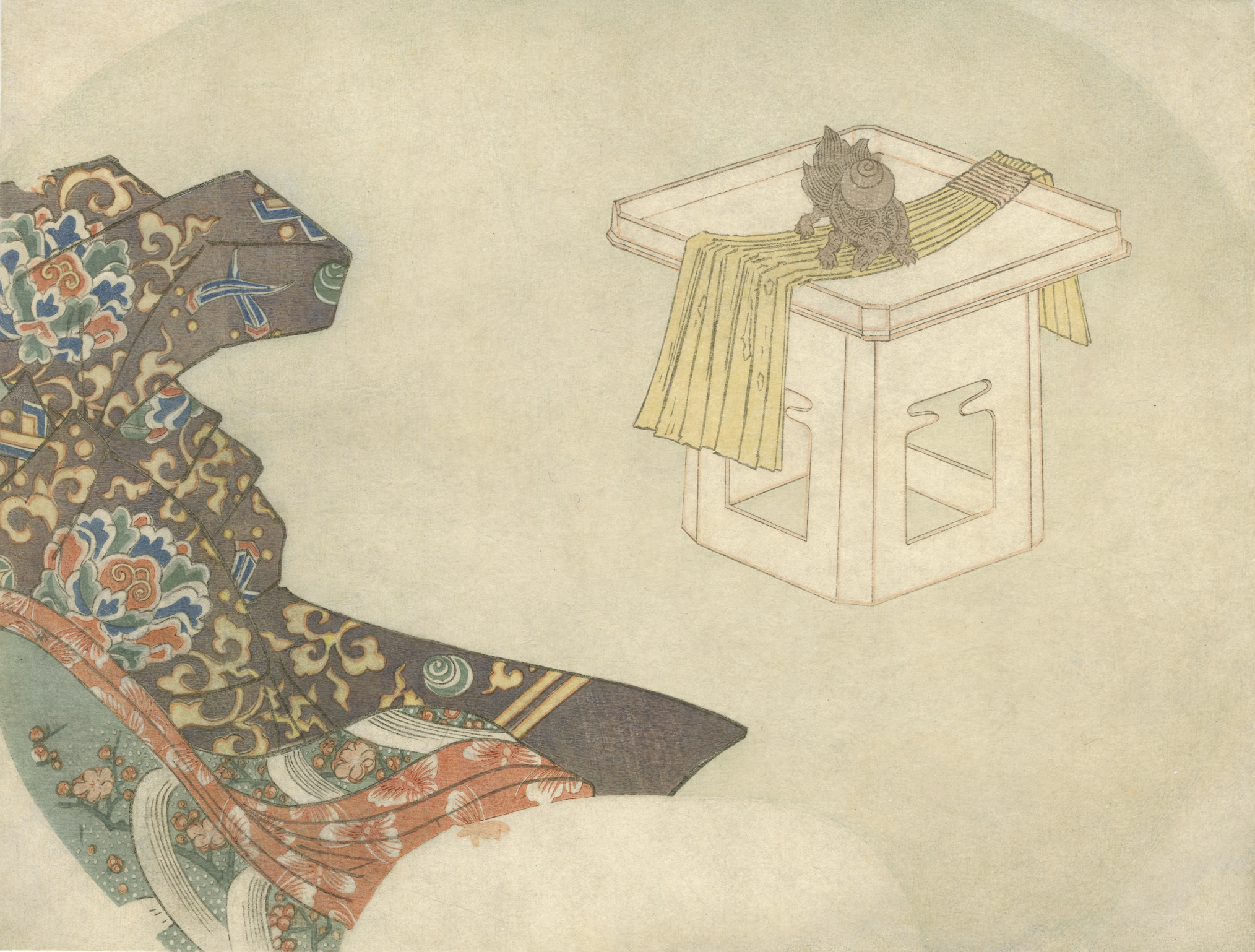Queen Mother of the West is a calque of Xiwangmu in Chinese sources, Seiōbo in Japan. Peaches of Immortality (Chinese: 仙桃) are consumed by the immortals due to their mystic virtue of conferring longevity on all who eat them.
Provenance: Charles Ephrussi (1849-1905) acquired in the 1870s; a wedding gift in 1898 to his cousin Ritter Viktor von Ephrussi (1860-1945) and Baroness Emilie (Emmy) Schey von Koromla (1879-1938); retrieved post-war by their daughter Elizabeth de Waal (1899-1991); given by her to her brother Ignaz (Iggie) Ephrussi (1906-1994), Tokyo; bequeathed by him to his great-nephew Edmund de Waal (born 1964), London, author of “The Hare with Amber Eyes: a hidden inheritance”. London / New York: Chatto & Windus / Farrar, Straus & Giroux. ISBN 978-0099539551. https://en.wikipedia.org/wiki/Charles_Ephrussi. https://en.wikipedia.org/wiki/Ephrussi_family. https://en.wikipedia.org/wiki/Edmund_de_Waal.-
 Wood netsuke of Seiōbo with a basket of immortal peaches, seated on a bed of clouds. Carver's signature tablet lost. Circa 1850. Dimensions: 32.6 x 28.1 x 20.1 mm.
Wood netsuke of Seiōbo with a basket of immortal peaches, seated on a bed of clouds. Carver's signature tablet lost. Circa 1850. Dimensions: 32.6 x 28.1 x 20.1 mm. -
 Title: Early Spring [初春之図] (Hatsuharu no zu); Series: Fashionable Twelve Months [今様十二ヶ月] (Imayo juni-kagetsu). Another version of translation: Modern Beauties of Twelve Months. Artist: Utagawa Toyokuni I [歌川豊国] (1769–1825). Pubisher: Ibaya Senzaburō [伊場屋仙三郎] (Japanese, 1815 – 1869), seal: Dansendō [伊場仙]. Signed: Toyokuni ga [豊国画] and sealed with toshidama. Date-kiwame seal: Ushi (ox), Bunsei 5 (1822). Size: double-sheet uncut fan print ( aiban uchiwa-e), each 217 x 288 mm. Ref: Tokyo Museum Collection.
Title: Early Spring [初春之図] (Hatsuharu no zu); Series: Fashionable Twelve Months [今様十二ヶ月] (Imayo juni-kagetsu). Another version of translation: Modern Beauties of Twelve Months. Artist: Utagawa Toyokuni I [歌川豊国] (1769–1825). Pubisher: Ibaya Senzaburō [伊場屋仙三郎] (Japanese, 1815 – 1869), seal: Dansendō [伊場仙]. Signed: Toyokuni ga [豊国画] and sealed with toshidama. Date-kiwame seal: Ushi (ox), Bunsei 5 (1822). Size: double-sheet uncut fan print ( aiban uchiwa-e), each 217 x 288 mm. Ref: Tokyo Museum Collection.
Other five prints of this series: SVJP 0326.2020; SVJP-0362.2022; SVJP-0363.2022; SVJP-0364.2022; SVJP-0365.2022.



